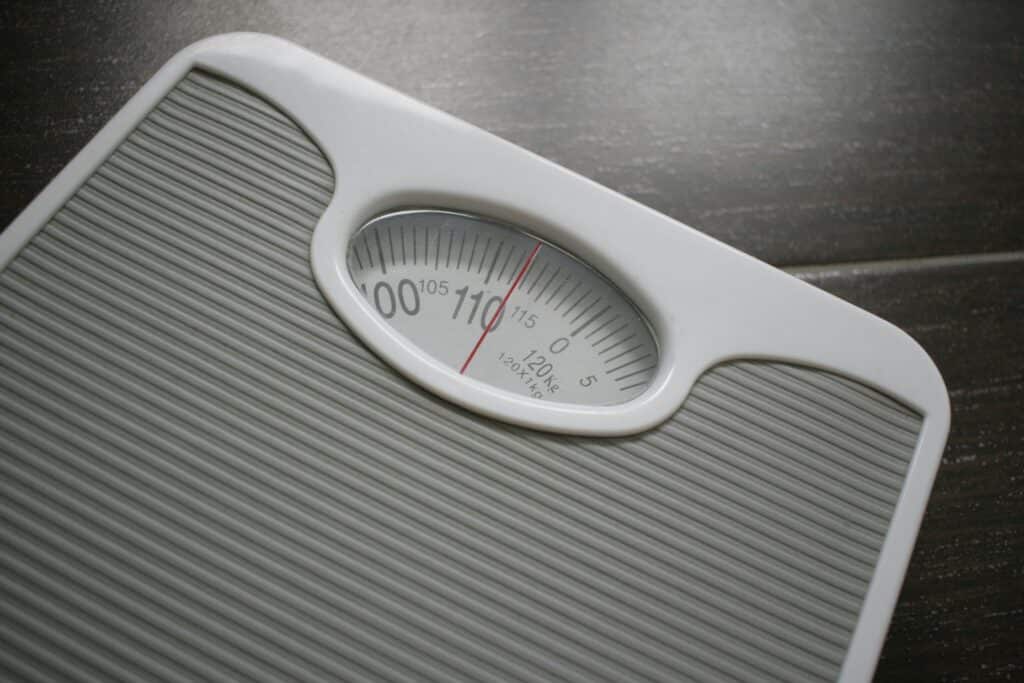
While many people are on a quest to shed excess pounds, there are those facing a different challenge: healthily gaining weight. Whether you aim to build muscle, recover from an illness, or simply reach a healthier weight, having a weight gain meal plan is the ultimate solution.
Table of Contents
Why is a weight gain meal plan important?
Crafting a proper weight gain meal plan is a vital step toward gaining pounds healthily and controlled.
Without a proper plan, gaining weight can easily result in consuming excessive calories from unhealthy foods. That’ll lead to storing unnecessary fat and make the process counterproductive. A structured weight gain meal plan ensures you meet your caloric goals without going overboard.
Gaining weight isn’t just about eating more; it’s about eating right. A meal plan ensures you get the right balance of macronutrients (carbohydrates, proteins, and fats) and micronutrients (vitamins and minerals) for better health.
Another massive perk of having a meal plan is that it allows for consistency. Adjusting your diet for a short period might give you some results. However, it’ll be impossible to sustain difficult diets long-term.
A weight gain meal plan can also be tailored to your particular goals. You may be seeking a quicker transformation or going for gradual weight gain. Regardless of your goals, a meal plan will ensure you stay on point with your objectives.
What to know before starting a weight gain meal plan?
Before starting a weight gain meal plan, setting clear and realistic goals is crucial. These objectives will help you to stay motivated and track your progress precisely. To do so, you must set your target weight and the timeframe for achieving those goals.
Determine your target weight

The first step is to determine your ideal weight gain target. Consider factors like:
- current weight;
- height;
- age;
- health.
It’s vital to set a goal that is both attainable and healthy. Consult with a healthcare professional or a nutritionist if you’re unsure about the appropriate target for your specific circumstances.
Define your timeframe
Once you have a target weight in mind, set a timeframe for achieving it. Setting a reasonable timeframe ensures you’re not rushing the weight gain process. If you try to go too fast, it can lead to unhealthy decisions. Stay patient and give your body the time to adapt to the changes.
How to make your weight gain meal plan?
After establishing your realistic weight objectives and the timeline for reaching them, you can begin designing your meal plan for achieving weight gain.
A well-designed plan will have all the necessary calories, proteins, fats, and vitamins to support your weight gain journey.
Calculate your daily caloric needs
There are three key factors to consider when calculating your daily caloric needs.
Determine your basal metabolic rate (BMR):
Your BMR represents the calories your body needs while at rest to maintain basic functions like regulating temperature and blood circulation. Various online calculators can help you estimate your BMR based on factors like:
- age;
- gender;
- weight;
- height.
Factor in physical activity:
You’ll need to multiply your BMR by an activity factor to include your daily activity level. This factor varies depending on how active you are. For example, use an activity factor 1.2 if you are sedentary. Someone with a highly active lifestyle might use a factor of 1.7 or higher.
Set a caloric surplus:
You’ll need to consume more calories than you burn to gain weight. A standard tip is to aim for a surplus of 250 to 500 calories daily. This surplus will result in a gradual and sustainable weight gain.
Sample meal plan
Here’s a simplified sample meal plan for a day:
Breakfast: Scrambled eggs with spinach and whole-grain toast
Mid-Morning Snack: Greek yogurt with berries and a handful of almonds
Lunch: Turkey and avocado wrap with whole-grain tortilla, mixed greens, and carrot sticks.
Afternoon Snack: Apple slices with peanut butter.
Dinner: Stir-fried tofu with mixed vegetables (like bell peppers, broccoli, and snap peas) served with brown rice.
Evening Snack: Cottage cheese with pineapple.
An excellent way to approach your weight gain meal plan is with meal prepping. This strategy allows you always to have the right foods at the right times. Instead of preparing each meal when needed, you can dedicate time to preparing and portioning your meals in advance.
That will save you a lot of shopping and cooking time while helping you stick to your meal plan. Cook and store meals in containers, making grabbing a nutritious meal or snack easy when you’re busy or on the go.
Another way to enhance meal prepping for weight gain efforts is to opt for meal delivery services. That’ll remove the need to cook your meals and adjust everything to your preferences and needs. Additionally, you’ll have the meals delivered to your doorstep.
Meal frequency and timing
Regular meals:
Plan to eat regularly throughout the day, ideally every 3-4 hours. Doing so will give your body a continuous supply of nutrients for growth.
Pre- and post-workout meals:
If you exercise, consider having a meal or snack that includes carbohydrates and protein before and after workouts. This supports muscle growth and recovery.
Progress monitoring
After creating a well-balanced weight gain meal plan, monitoring your progress is crucial. Tracking your progress allows you to make necessary changes to your plan and keeps you on the right path to reaching your target weight. Here’s how to effectively track your weight gain journey:
Regular weigh-ins:
Weigh yourself regularly at the same time and under the same conditions (before breakfast, for example). Use a reliable scale to track your weight accurately.
Keep a food journal:
Keep track of your daily food intake, including portion sizes and meal timings. Apps and websites can simplify this process and provide insights into your nutrient intake.
Body measurements:
Alongside tracking your weight, measure other key metrics like:
- waist circumference;
- hip circumference;
- body fat percentage.
This can give you a clearer picture of your progress.
Photos:
Take progress photos of your physique every two weeks or monthly. Visual comparisons can motivate and help you notice changes that may not be reflected in the numbers.
Final thoughts
Gaining weight quickly and safely is possible when you have a structured weight gain meal plan and stay committed. It’s vital to be consistent and make small changes that’ll lead to big results over time.
Choose healthy foods, prepare your meals ahead of time, and don’t hesitate to ask for help from experts when you need it. Enjoy the journey and focus on not just gaining weight but also feeling better overall. Remember that gaining weight safely is about achieving balance and well-being, and your journey is a testament to your commitment to a healthier, happier life.

